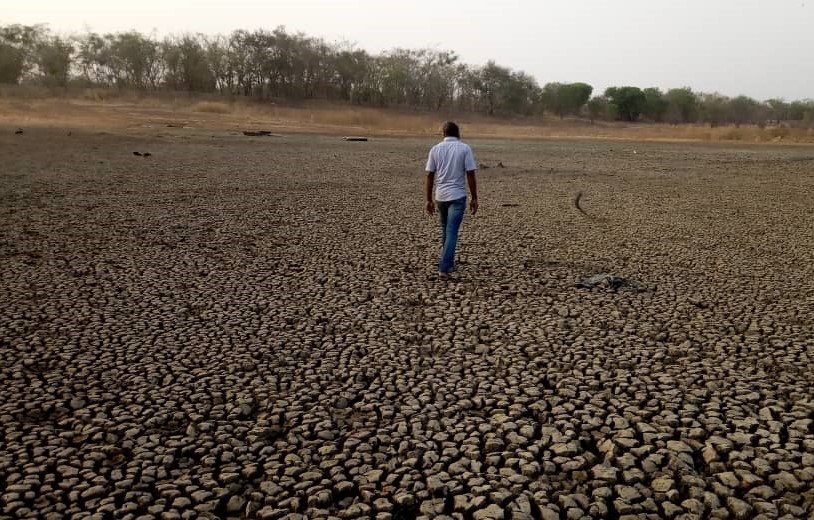Climate Change & Energy
Confronting Water Security Challenge In Drylands: Political Will And Leadership To The Rescue
Source: ghenvironment.com - June 16, 2021

dried up dam at Damongo
The world’s drylands are facing water security challenges in enhancing more equitable access to water resources in achieving the world’s development goals.
Researchers from the University of York; Department of Environment and Geography published a report in commemoration of World Day to Combat Desertification and Drought on 17 June 2021. It examines current and projected climate change impacts on water security across the world’s drylands up to the year 2100.
The research suggests that more efficient water management, technology and infrastructure, and better demand and supply management can offer more equitable access to water resources and help to achieve world development goals.
Close to two billion people around the world are affected by water scarcity. Climate change has compounded water scarcity in drylands in hot, tropical areas which are already experienced a temperature rise higher than the global average.
It is projected as a result of climate change more people; close to half the world’s population will be living under high conditions of water stress.
Lead author, Professor Lindsay Stringer says that “people in dryland areas are already adapting to climate changes, but they need to be supported with coherent system-oriented policies and institutions that put water security at their core.”
Climate change could hamper drylands’ human and environmental systems’ ability to adapt to water dynamics, with knock-on effects for other places beyond the drylands as well.
The researchers support the integration of water concerns across borders and sectors, through approaches such as Integrated Water Resources Management (IWRM).
Professor Stringer explains that “to make sure no one gets left behind, more attention needs to be paid to how decisions about water management link to other things, like food, energy, livelihoods, migration and human health.”
He argues that achieving water security is not just an environmental challenge, but also a leadership issue. “We need to ensure access to water and its quality is properly managed. That requires political will, capacity, resourcing, and leadership to develop a truly integrated approach to delivering water-related decisions.”
“Stakeholder engagement is increasingly important, particularly in complex contexts where dryland rivers flow across multiple national borders, and approaches like IWRM are vital in shaping more equitable water resource allocation.”
 dried up dam at Damongo
dried up dam at Damongo


